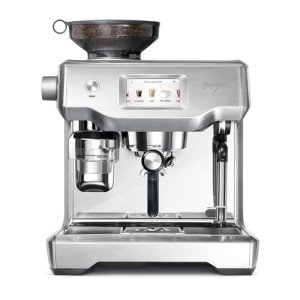Home Use Espresso Machines: A Comprehensive Guide
Espresso machines have actually ended up being a staple in numerous families as coffee enthusiasts seek to reproduce café-quality brews in the comfort of their kitchens. The increase in appeal has resulted in a varied market filled with different models, features, and rates. This short article aims to supply an informative introduction of home use espresso machines, assisting readers navigate their options effectively.
Understanding Espresso Machines
Espresso machines work by forcing warm water through finely-ground coffee under high pressure, leading to a concentrated coffee drink known as espresso. There are numerous types of espresso machines categorized based on their brewing approaches and level of automation. The most common types consist of:
- Manual Espresso Machines: These require the user to control the pressure and water circulation, enabling a more hands-on coffee-making experience.
- Semi-Automatic Espresso Machines: These use automatic control over water pressure, while the user manually grinds and tamps the coffee.
- Automatic Espresso Machines: With the push of a button, these machines immediately manage the flow of water, making it easier to brew espresso with constant results.
- Super-Automatic Espresso Machines: These all-in-one machines handle grinding, tampering, developing, and even milk frothing, making them perfect for users looking for benefit.
- Pill or Pod Machines: These use pre-packaged coffee pods to create espresso with minimal effort, however they restrict option in developing techniques and tastes.
Table: Comparison of Espresso Machine Types
| Type | Control Level | Alleviate of Use | Cleaning Level | Perfect For |
|---|---|---|---|---|
| Manual | User-controlled | Moderate | High | Coffee purists |
| Semi-Automatic | Partial automation | Moderate | Moderate | Home baristas |
| Automatic | Fully automated | Easy | Low | Hectic individuals |
| Super-Automatic | Completely automated | Really easy | Really low | Convenience applicants |
| Capsule/Pod | Completely automated | Really easy | Really low | Casual drinkers |
Key Features to Consider
When selecting a home use espresso machine, it's vital to think about numerous features that can substantially affect the quality of espresso and user experience.
- Pressure: Look for machines that provide at least 9 bars of pressure, as this is thought about optimal for brewing espresso.
- Boiler Systems: Single vs. dual boiler systems identify temperature stability and the ability to brew espresso and steam milk concurrently.
- Grinder: Integrated mills permit freshly ground coffee, which enhances flavor. Think about machines with adjustable grind settings.
- Milk Frother: For those who enjoy coffees and lattes, a built-in steam wand or automatic frother is important.
- Size and Design: Consider your kitchen area and visual preferences. Machines can be found in numerous sizes, from compact to large setups.
- Rate: Home espresso machines can vary from a couple of hundred to several thousand dollars, so it's crucial to develop a budget before exploring options.
Advantages and disadvantages of Home Use Espresso Machines
| Pros | Cons |
|---|---|
| Convenience of brewing coffee at home | Initial investment can be high |
| Quality of espresso is frequently superior | Requires some ability, particularly with manual machines |
| Ability to explore flavors | Upkeep and cleaning can be labor-intensive |
| Can save money in the long run | Not all machines will suit every coffee choice |
Maintenance and Cleaning Tips
Maintaining an espresso machine is important for extending its life and making sure constant brew quality. Here are some useful suggestions:
- Regular Descaling: Minerals from water can build up in the machine. Descale every 1-3 months, depending on water hardness.
- Daily Cleaning: Rinse portafilters, baskets, and steam wands after each use to avoid coffee oils from constructing residue.
- Use Filtered Water: This can help in reducing mineral accumulation and enhance the taste of coffee.
- Change Gaskets and Seals: These elements might break gradually and ought to be changed to maintain pressure and efficiency.
- Check out the Manual: Each machine has particular care directions; following these will ensure longevity.
Frequently Asked Questions About Home Use Espresso Machines
Q1: What is the best budget espresso machine?The best budget espresso machine frequently depends upon individual needs, however models like the DeLonghi EC155 or the Breville Bambino are popular amongst users for offering terrific worth. Q2: How long do home espresso machines normally last?With correct upkeep, home espresso machines can last anywhere from 5 to 15 years, depending on the quality of the machine and frequency of use. Q3: Can I make coffees and lattes with any espresso machine?While most espresso machines can make cappuccinos and lattes, having a trusted
steam wand or frother is essential for attaining the best milk texture.
Q4: Are super-automatic machines worth the investment?For those who prioritize benefit and quick developing, super-automatic machines can be worth the financial investment, though they might lack some customizability in brew strength and flavor. Q5: What types of coffee beans are best for espresso?While individual preference contributes, beans identified as" espresso "blends are generally roasted darker, creating abundant flavors and a creamy texture when brewed.
Purchasing a home espresso machine can change the day-to-day coffee routine into something special, raising home brews to café quality. By understanding the different kinds of machines, key functions to consider, upkeep requirements, and weighing the
pros and cons, customers can make informed decisions that match their specific preferences. As click the up coming article continues to grow, no matter the choice, every brew can be a tasty experience waiting to be savored.

